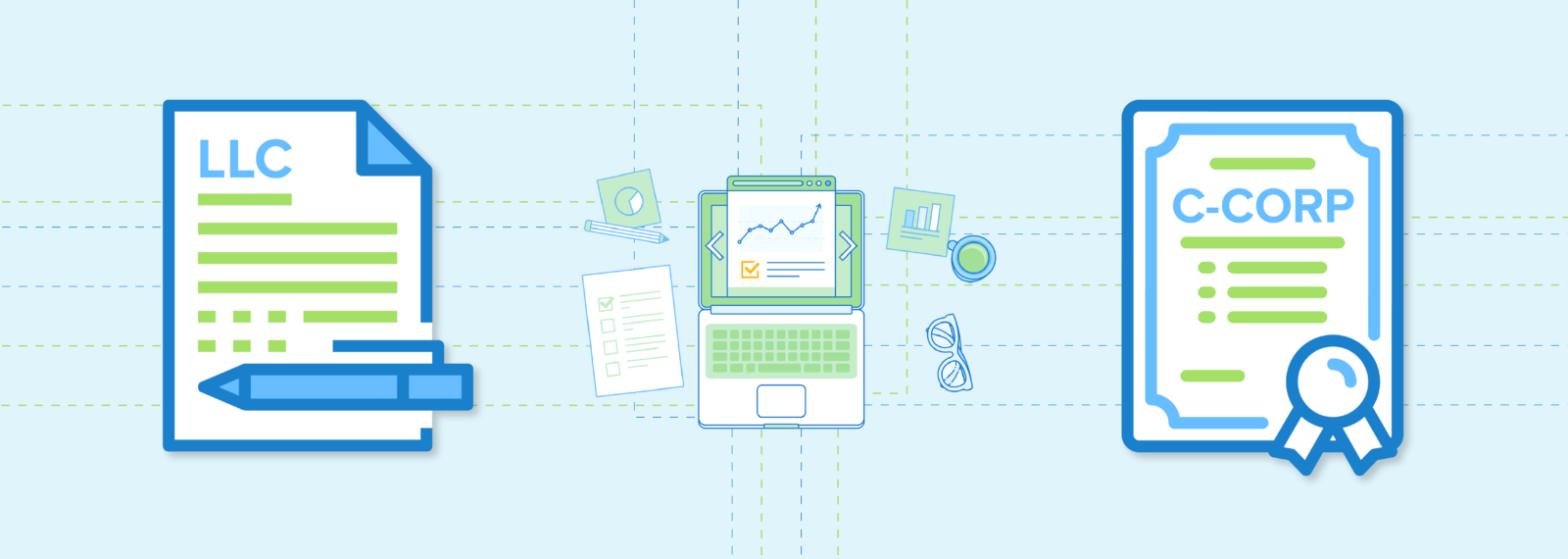Guide to Business Formations and Structuring
There are four general types of business formations. Each one has advantages and disadvantages, and it is important to know which one your business falls under, so you be sure to benefit the most from it. A business structure affects how much you pay in taxes, the ability to raise money, the paperwork that is needed to file, and personal liability.
A business structure will need to be chosen before the business is registered with the state, as well as a tax ID number and filings for the correct licenses and permits. NOW CFO has experienced business counselors and accountants to consult on which business structure will be the best fit for the business.
What Are the Business Formations?
1.Sole Proprietorship:
A sole proprietorship is the most popular business structure in the United States. Approximately 73% of small businesses are run by a sole proprietor. Essentially, it is an unincorporated business that requires no legal action to form, which makes it the simplest to organize and operate.
Pros: The only filings needed are the necessary licenses and permits. Tax preparation is simplified because all business income and expenses are reported on the personal tax returns. This is known as “pass-through” taxation.
Cons: Because there is no legal separation between the owner and the business, there is a much larger concern of liability and credibility issues. Since the business is not incorporated, prospects and clients may view the business as unprofessional or not dependable.
2. Partnership:
Partnership is as the name describes- it is two or more people owning a business together. This structure is a good choice for businesses with multiple owners or groups like attorneys who want to test their business idea before a more formal business. There are two different types of partnerships:
– Limited Partnerships (LP): There is only one general partner with unlimited liability, and all other partners have limited liability. The partners with limited liability tend to have limited control over the company. Profits are passed through personal tax returns, and self-employment taxes must be pad.
-Limited Liability Partnerships (LLP): An LLP is similar to an LP, but limited liability is given to every owner. An LLP protects each partner from debts against the partnership.
Pros: Partnerships are easy to start and maintain, but a partnership agreement is strongly advised to mandate who does what, how the profits are split, how disagreements will be handled and steps to dissolve the partnership.
Cons: High-risk professions such as lawyers, doctors, and more may need more protection and should consider an LLC because of the larger number of protections.
3. Limited Liability Company:
An LLC has benefits on both the corporation and partnership business structures. An LLC protects from personal liability and personal assets, such as a vehicle, house, and savings accounts. They will not be at risk in case the LLC faces bankruptcy or lawsuits.
Pros: An LLC provides business owners protection from personal liability for debts and obligations. If the company is suing, only the company’s assets are at risk, not the owner.
Cons: LLC status does not protect you from all actions such as being sued by an employee, which is why business insurance is a must.
4. Corporation
C Corporation: A C-Corp is a legal entity that is separate from its owners. They can be taxed, make a profit, and be held legally liable. There is a strong protection from personal liability, but the cost to form a corporation is high and there is much more operational and day to day work to be done.
Corporations have a good advantage when it comes to raising capital because they can raise funds through the sale of a stock. This makes them a good choice for medium or higher risk business that are looking to go public or be sold.
S Corporation: An S-Corp must incorporate as an LLC, then notify the IRS to tax the LLC as an S corp. This will give better tax benefits because the business owner draws a salary from the businesses profits as an employee, since they will be subject to self-employment tax. Unfortunately, an S-Corp can be costly and complicated in the long run.
| Business structure | Ownership | Liability | Taxes |
| Sole proprietorship | One person | Unlimited personal liability | Personal tax only |
| Partnerships | Two or more people | Unlimited personal liability unless structured as a limited partnership | Self-employment tax (except for limited partners)
Personal tax |
| Limited liability company (LLC) | One or more people | Owners are not personally liable | Self-employment tax
Personal tax or corporate tax |
| Corporation – C corp | One or more people | Owners are not personally liable | Corporate tax |
| Corporation – S corp | One or more people, but no more than 100, and all must be U.S. citizens | Owners are not personally liable | Personal tax |
| Corporation – B corp | One or more people | Owners are not personally liable | Corporate tax |
| Corporation – Nonprofit | One or more people | Owners are not personally liable | Tax-exempt, but corporate profits can’t be distributed |
Get Your Free Consultation
Gain Financial Visibility Into Your Business
We provide outsourced, fractional, and temporary CFO, Controller, and operational Accounting services that suit the needs of your business.
- Hourly Rates
- No Hidden Fees
- No Long Term Requirements
NOW CFO provides the highest level of expertise in finance and operational accounting to accelerate results and achieve strategic objectives for sustainable growth and success.
After completing the form, a NOW CFO Account Executive will reach out and learn more about your needs so that we can pair you with the right Partner.



